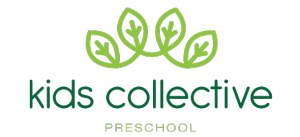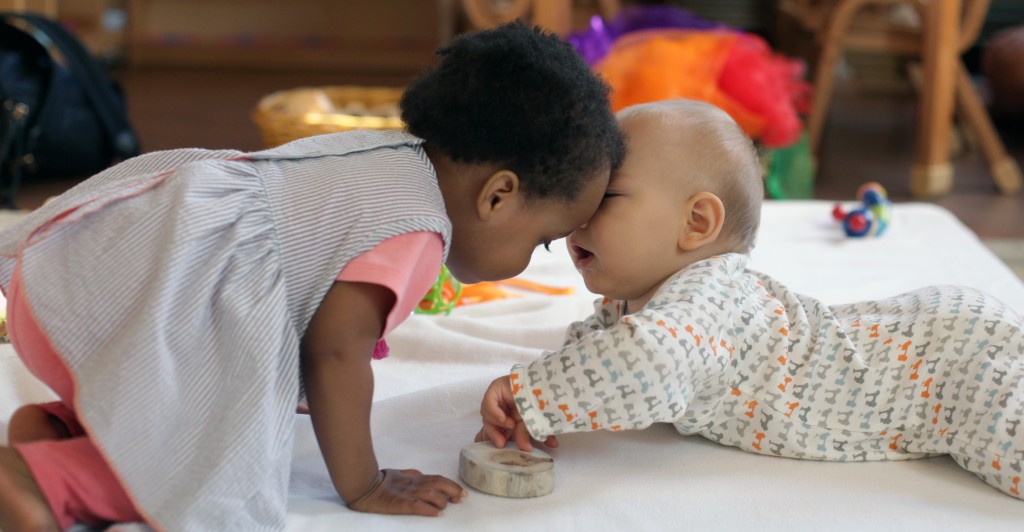The first three years of life are a crucial milestone for kids that can shape every year thereafter. It is a period of intensive growth and rapid developmental changes, which require deliberate and purposeful attention from parents and caregivers to children’s physical and emotional needs and sensitivities. Getting insights into children’s development is a prerequisite for building a solid foundation for their later learning.
Toddlers’ and Infants’ Developmental Milestones
When speaking about ages and stages, we mean certain developmental milestones that children experience from the day they were born. Between birth and age three, infants and toddlers learn to crawl and walk, watch and listen, talk and sing, recognize and understand feelings, coexist and interact with people.
Development does not come in the same time and way for all kids. All children are developmentally unique, and they can meet their milestones a little earlier or later than their agemates. Although there are traditionally accepted principles of human development, each kid develops at his own pace and in his own way.
There are the following developmental milestones that toddlers and infants go through:
- Physical development: kids get to know how to move the body and its parts (holding a head, grasping, kicking, rolling, balancing, etc.).
- Social and emotional development: they learn to distinguish themselves from others, express emotions and build relationships with adults and peers.
- Communication and language skills development: children explore non-verbal and verbal communication, learn to listen, speak and respond.
- Cognitive development: they engage their senses to discover objects, experience the number, location, speed, cause and action, similarities and differences of things.
- Creativity growth: they learn to listen to music, imitate sounds, identify pictures, discover art materials.
Basic Principles of Infants’ and Toddlers’ Programs
Based on core developmental needs at every age and stage, educators and caregivers implement appropriate curricula to inspire children, nurture their individual strong points and prepare them for success in a preschool and beyond.
Here is a list of core principles that should be incorporated in the program for infant toddler care.
• Ensuring children’s rounded development
Each child develops as a whole person. In an early age, children’s physical, social and mental attains develop together, and they cannot be pried apart. Each new ability develops based on the previously gained experience, which lets children grow in all developmental areas at once.
With this in mind, a quality infant and toddler program usually incorporates activities, materials and daily routines that stimulate children’s upgrowth in a variety of domains. A robust combination of emotional and social development practices, healthy well-being and attitudes about learning helps children get ready for school. There is no priority in a particular developmental area – all of them are vital and continue through the infant and toddler years into the preschool years and beyond.
• Nurturing relationships between children and parents
Nothing is more important for a baby than loving and nurturing relationships with trusted adults. It is parents who are the first and most important teachers in a child’s life. To build such relationships, parents are expected to respond delicately to babies’ needs and feelings. As a part of toddler programs, they are welcome to connect with teachers and follow their guidance that help parents strengthen childcare and affirm families’ commitment to kids.
• Setting up a stimulating environment
Infants and toddlers learn from birth. They are curious explorers who are actively engaged with things that appeal to them. Creating a developmentally appropriate environment at a preschool or/and an appealing, engaging space at home is the best way to encourage active discoveries and stimulate children to go about new explorations.
Play-based activities are an integral part of the infant and toddler program. They usually imply repeatable actions that help infants discover what their bodies can do and what things around them are like. Later on, at a toddler age, play acquires symbolic meaning. Through play, toddlers show what they have already learn and try out new skills. Older toddlers build social skills, as they interact with peers in play-based activities.
• Following individual rhythms and routines
The importance of protective and secure care setting is of vital importance. Infants and toddlers experience transition from secure home places to unfamiliar environments. To prevent anxiety and negative outcomes for children’s health, these environments should be adjusted to infants’ individual rhythms and routines for eating, sleeping, toileting and nappy changing.
In a nurturing and protective environment, caregivers promptly react to every sign of babies’ distress and anxiety. Daily routines are predictable, flexible and calm. Much attention is paid to help toddlers develop self-care skills at each developmental stage.
• Fostering self-expression and communication development
Toddlers and infants use a range of means to express their feelings and thoughts, as well as react to other people’s interactions. From birth, one of the major challenges for infants is to develop competence in understanding a language. Language development implies not only speaking in words and sentences, but also non-verbal communication, i.e. gestures, facial expression, movements.
Infant-toddler programs cover activities that help children communicate feelings through their bodies and verbal means: action and listening games, pretend play, words and phrase modelling, initiation of conversation. As kids learn to express themselves in a variety of means, they acquire creative skills, such as symbolic, abstract and imaginative thinking.
Infants’ and toddlers’ growth and development are periods of essential changes in children’s physical state, emotional reactions and social capabilities. Each developmental area brings about new abilities that encourage toddlers’ curiosity and exploration and contribute to their overall development.
The entire development process should occur in the context of positive and nurturing experiences that enable kids to build secure and trustworthy relationships with families and adults who take care of them. All children are unique, and they should have an opportunity to learn how to do new things in their own way. They don’t need instructions, but love, patience and a little freedom to succeed gradually on their learning pathway.





